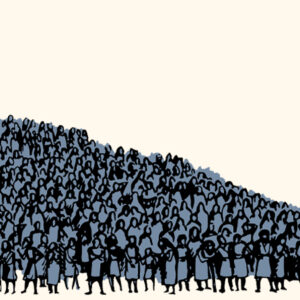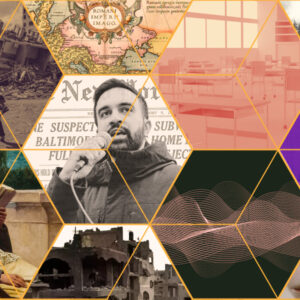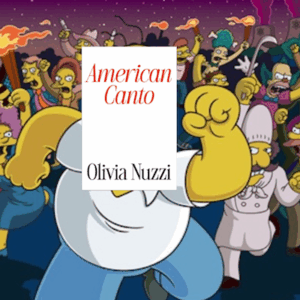
How a 1977 Czech Writers’ Manifesto Applies to the Stark Realities of America in 2025
What We Can All Learn From the Courage of Charter 77
The wonderful Czech writer Ivan Klima died this past weekend at the age of 94. Klima lived a remarkable, principled life, having survived both the Nazi occupation of Prague (he spent three years in the concentration camp at Terezin as a boy), and the post-1968 repression of the Soviet regime.
Unlike his more famous literary compatriots, Milan Kundera and Josef Skvorecky, Klima stuck around in Czechoslovakia, despite being forbidden from publishing for 20 years. For two decades Klima was consigned primarily to menial work, as a street sweeper, bricklayer, orderly… But he kept writing. And he kept resisting, through the publication of literary samizdat (his own and others), organizing clandestine salons, and helping to disseminate Charter 77, an artists’ manifesto named for the year it was written.
The main authors behind Charter 77—Václav Havel, Jan Patočka, and Pavel Kohout, who were responding to the Communist government’s crackdown on free expression—generated its moral (and to some extent legal) authority by citing two UN human rights covenants signed by the Czechoslovak government in 1968, in the lead up to the so-called Prague Spring. [Spoiler: the Russians didn’t approve, sent tanks into Prague, and crushed any hope of a freer society].
The Communist regime quickly made it a crime to distribute copies of Charter 77, calling it “an anti-state, anti-socialist, and demagogic, abusive piece of writing,” and deeming its signatories to be “traitors and renegades” and “agents of imperialism.” As for how they saw themselves, the organizers behind Charter 77 were very clear about being nothing more than an ad hoc confederation of likeminded people, and certainly not an opposition party. In their own words, they were a “loose, informal, and open association of people . . . united by the will to strive individually and collectively for respect for human and civil rights in our country and throughout the world.” (So, more of a shared set of beliefs than a formal organization, like, you know, antifa.)
Why is a 50-year-old writers’ manifesto worth thinking about now? First of all, the aforementioned human rights covenants, cited at length in the charter, map neatly over what we still like to think of as western democratic ideals of free expression and individual liberty. And just as Charter 77 decries the state crack-down on those ideals in 1970s Czechoslovakia, we too can cite many and obvious authoritarian crimes from the Trump administration circa 2025.
From government officials menacing late-night comedians to masked thugs landing helicopters on apartment buildings, from Democratic officials threatened with jail time by the president to the brazen flouting of the rule of law, America’s decades-long drift into authoritarianism has sped up dramatically in the last nine months. We are in the middle of an anti-democratic sea-change, and as each week passes the likes of Stephen Miller grow bolder in flouting their fascist inclinations.
But it’s never too late to fight for basic human freedoms, for the right to be who you are and to say what you want, the right to not go hungry or get shot at school or lose everything because you get sick. Luckily, Charter 77—which is but one of countless historical examples of courage in the face of tyranny—offers a clear blueprint for how we might respond to the Trump administration’s attacks on free expression and the rule of law:
With regard to the targeting of pro-Palestinian ideas on college campuses:
The right to freedom of expression, for example, guaranteed by Article 19 of the first-mentioned covenant, is in our case purely illusory. Tens of thousands of our citizens are prevented from working in their own fields for the sole reason that they hold views differing from official ones, and are discriminated against and harassed in all kinds of ways by the authorities and public organizations.
With regard to the oligarchical consolidation of media, and the punishment of journalists for expressing political opinions:
Freedom of public expression is inhibited by the centralized control of all the communication media and of publishing and cultural institutions. No philosophical, political or scientific view or artistic activity that departs ever so slightly from the narrow bounds of official ideology or aesthetics is allowed to be published; no open criticism can be made of abnormal social phenomena; no public defense is possible against false and insulting charges made in official propaganda.
With regard to the organized doxxing of private citizens by the far right media ecosystem:
False accusations cannot be rebutted, and any attempt to secure compensation or correction through the courts is futile; no open debate is allowed in the domain of thought and art. Many scholars, writers, artists and others are penalized for having legally published or expressed, years ago, opinions which are condemned by those who hold political power today.
With regard to Trump’s threat to universities and, indeed, to hundreds of other non-profit organizations across the country:
One instrument for the curtailment or in many cases complete elimination of many civic rights is the system by which all national institutions and organizations are in effect subject to political directives from the machinery of the ruling party and to decisions made by powerful individuals. The constitution of the republic, its laws and legal norms do not regulate the form or content, the issuing or application of such decisions; they are often only given out verbally, unknown to the public at large and beyond its powers to check; their originators are responsible to no one but themselves and their own hierarchy; yet they have a decisive impact on the decision-making and executive organs of government, justice, trade unions, interest groups and all other organizations, of the other political parties, enterprises, factories, institutions, offices and so on, for whom these instructions have precedence even before the law.
With regard to attacks on unions and the right to organize:
This state of affairs likewise prevents workers and others from exercising the unrestricted right to establish trade unions and other organizations to protect their economic and social interests, and from freely enjoying the right to strike
With regard to ICE’s unconstitutional detention and deportation of “enemies of the state”
Further civic rights, including the explicit prohibition of “arbitrary interference with privacy, family, home or correspondence,” are seriously vitiated by the various forms of interference in the private life of citizens exercised by the Ministry of the Interior, for example by bugging telephones and houses, opening mail, following personal movements, searching homes, setting up networks of neighborhood informers (often recruited by illicit threats or promises) and in other ways. This Ministry frequently interferes in employers’ decisions, instigates acts of discrimination by authorities and organizations, brings weight to bear on the organs of justice and even orchestrates propaganda campaigns in the media. This activity is governed by no law and, being clandestine, affords the citizen no chance to defend himself. In cases of prosecution on political grounds the investigative and judicial organs violate the rights of those charged and those defending them.
It is important to remember today—when things in America are particularly dark, when the Republican Speaker of the House refers to protesters as terrorists, when the president’s private army locks up American citizens—that the members of Charter 77 didn’t know the Communist regime would eventually fall; couldn’t possibly have hoped for something as peaceful as the Velvet Revolution, or that one of their own, Vaclav Havel, would go from dissident to president virtually over night. For all any of them knew they were going to die under the yolk of authoritarian repression—and yet they resisted. They lived according to their principles, made personal sacrifices, and took action in the face of injustice.
This now, following their example, is all we can do: speak the truth, take care of each other, and live in such a way that defies the cruelty of authoritarians everywhere.
Jonny Diamond
Jonny Diamond is the Editor in Chief of Literary Hub. He lives in the foothills of the Catskill Mountains with his wife and two sons, and is currently writing a cultural history of the axe for W.W. Norton. @JonnyDiamond, JonnyDiamond.me












